4 Days, 5 Murders
Episode 3: The University
Three students’ bodies have been discovered, pointing to the work of a serial killer. Fear strikes the UF community, and leaders grapple with how to respond.
Three decades later, a box of tragedies reveals the fear that gripped Gainesville.
By Camille Respess
John Lombardi led the University of Florida for nine long years and yet, archivists use just one word to describe the hundreds of letters the university president sent and received in his tenure: tragedies.
His term will forever be remembered at its six-month mark, when it was cruelly interrupted by the grisly murders of five students in Gainesville.
Those letters inhabit a white cardboard file box stored among many others at the university’s Smathers Library. Historian Carl Van Ness refers to the contents of that box as a reflection of one of the most difficult times in the university’s history.
“It’s the documentation that President John Lombardi received during the course of the murders,” Van Ness said. “So, it’s called tragedies. It’s the communications that he had with students, but also with other people, expressing their horror and what was happening in Gainesville and their best wishes.”
The horror Van Ness is referring to is the August 1990 murders of Sonja Larson, Christina Powell, Christa Hoyt, Tracy Paules and Manny Taboada. All five victims were college students in Gainesville.
As police searched for the murderer and this north-central Florida city plunged into shock and sorrow, the university was left to deal with an unprecedented situation. University officials cancelled classes temporarily, encouraged students to go home and put a hold on tuition and fees. The university put new security and safety measures in place, too. And Lombardi, the official face of the university, had no choice but to correspond with the public.
Open the tragedies box and you’ll get some understanding of public sentiment and fear at the time.
Some of these letters were released to WUFT, though the names of letter writers and other identifying information have been redacted. What follows is a sampling of those letters:
Shut down the university
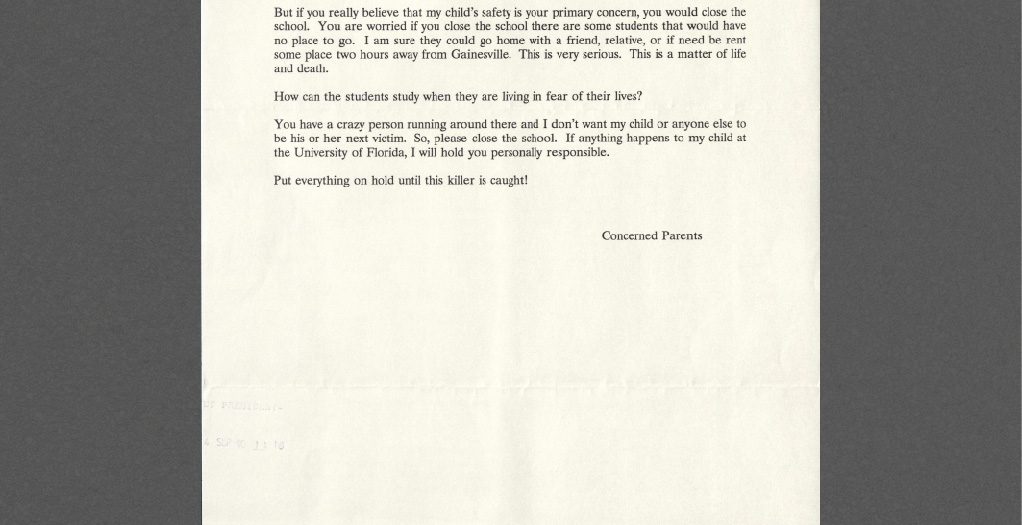
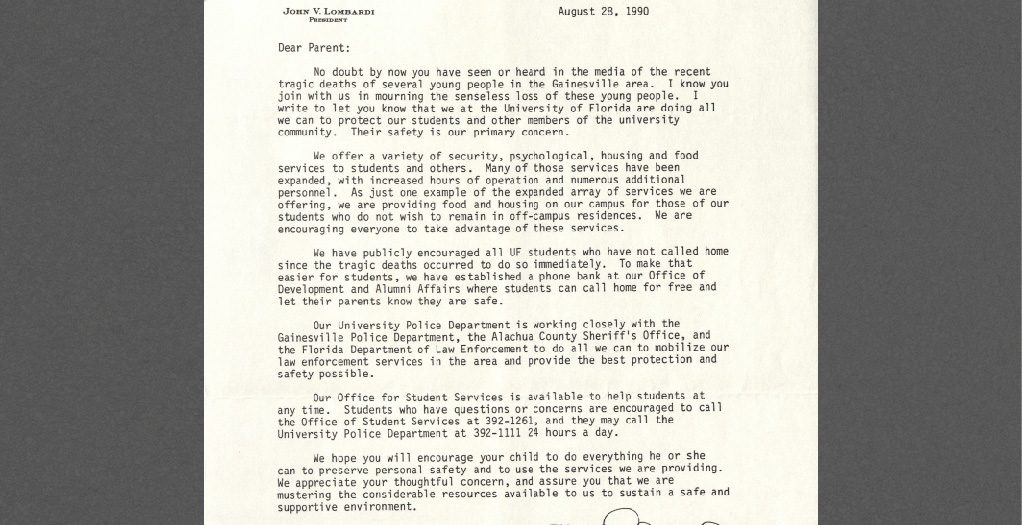
In a letter signed by “Concerned Parents,” the author(s) urge Lombardi to shut down the university. For the sake of safety.
“This is very serious,” they wrote. “This is a matter of life and death. How can students study when they are living in fear of their life?”
Lombardi responded in a letter on Aug. 28, 1990, just one day after Tracy Paules and Manny Taboada were murdered. He said student safety was the university’s primary concern and that the Office of Development and Alumni Affairs had set up a phone bank for students to make free long-distance calls home to their worried families. This was 1990 and long before e-mails had become a primary mode of communication and cell phones a commodity everyone carried.
The University of Florida campus never closed that fall semester.
Get more mace
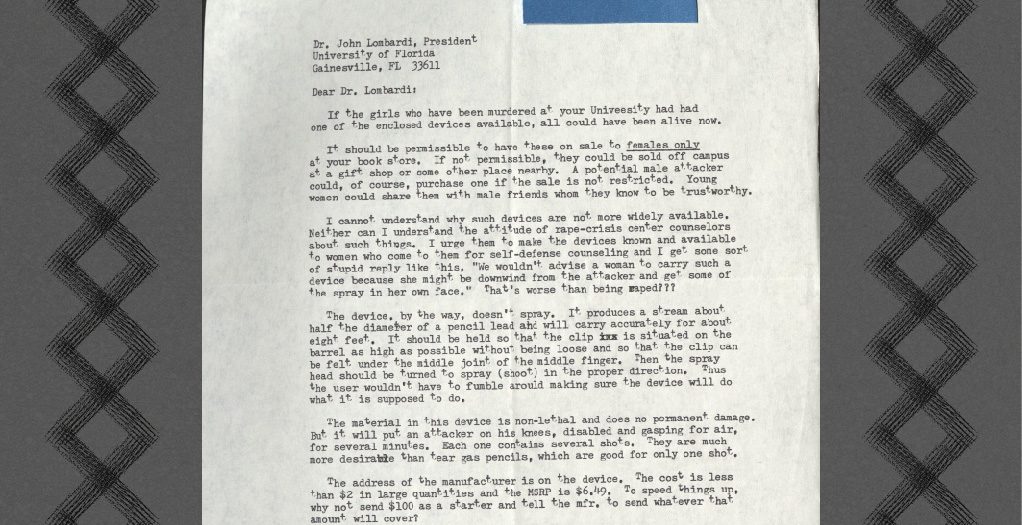
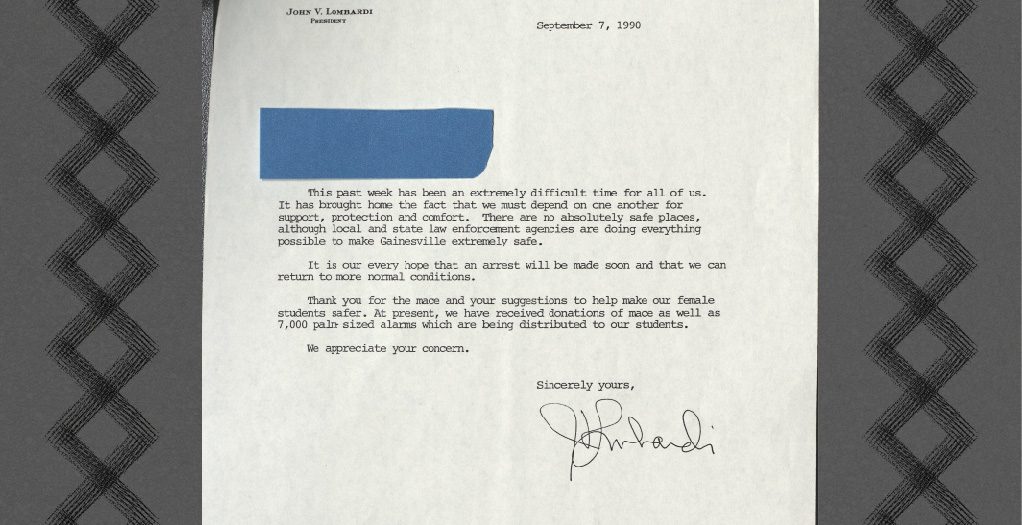
“If the girls who have been murdered at your University had had some of the enclosed devices available, all could have been alive now.”
That was the opening line to a typewritten letter sent to Lombardi, accompanied by some mace. The writer insisted the UF bookstore should sell such self-defense measures to female students.
In the wake of the murders, the university did beef up its safety measures. It increased police and security presence on campus and distributed handheld alarms and whistles to students, which Lombardi noted in his response.
Should I send my child back to school?
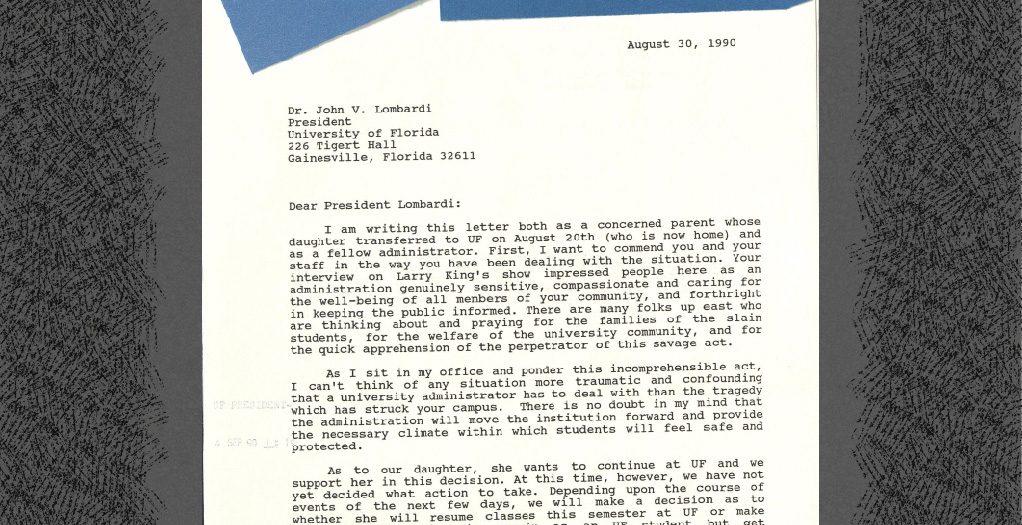
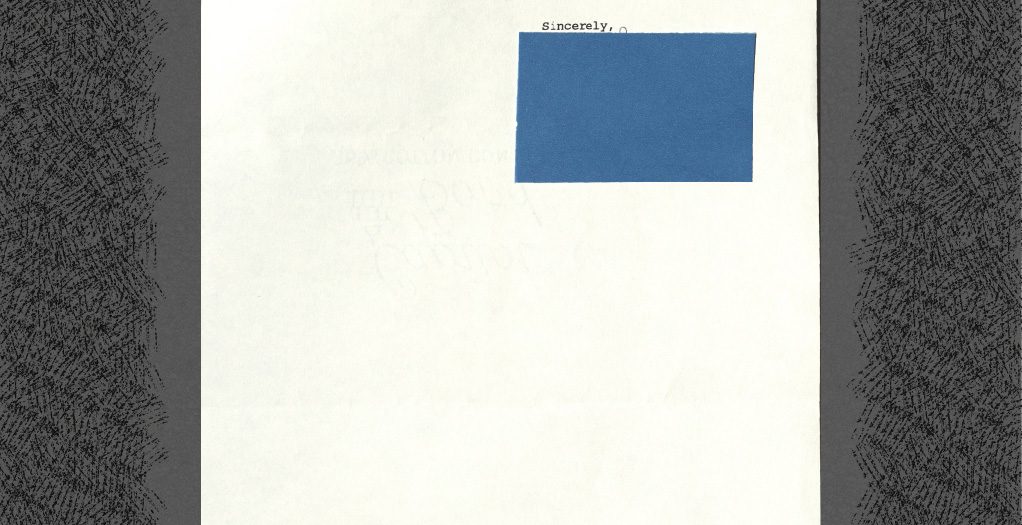
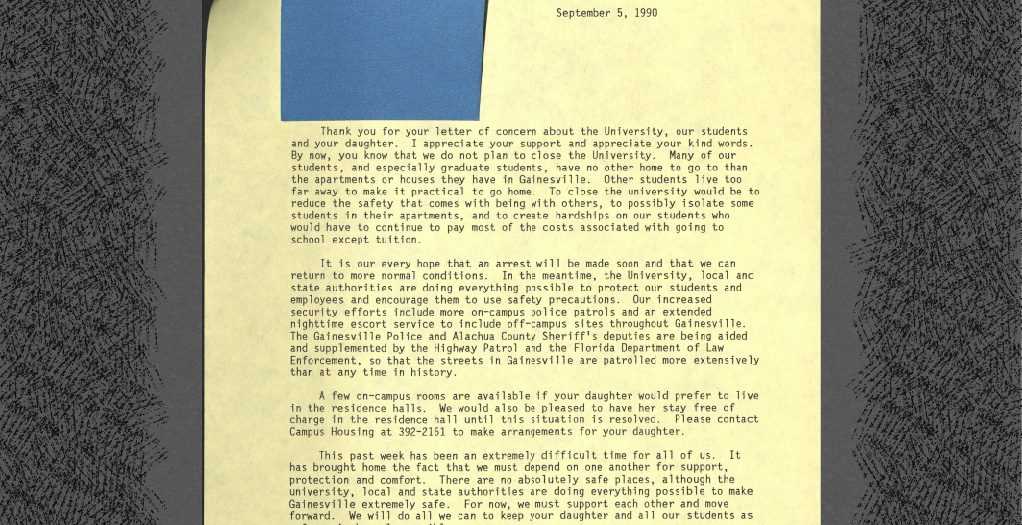
As shock and fear gripped Gainesville in the immediate aftermath of the murders, the university encouraged students to leave Gainesville and go home for the weekend, the first of the fall semester. At the start of that Labor Day weekend, no one was certain if or when classes would resume.
“Depending upon the course of events of the next few days, we will make a decision as to whether she will resume classes this semester at UF or make arrangements for her to remain as an UF student but get permission to take classes (at home) for the fall semester and return to UF for the spring semester,” a mother wrote in an Aug. 30, 1990 letter to Lombardi.
Though some students did not return, classes, of course, did resume the following week. And in a response dated Sept. 5, 1990, Lombardi offered free on-campus housing to the concerned mother “until this situation is resolved.”
Can UF be doing more to protect its students?
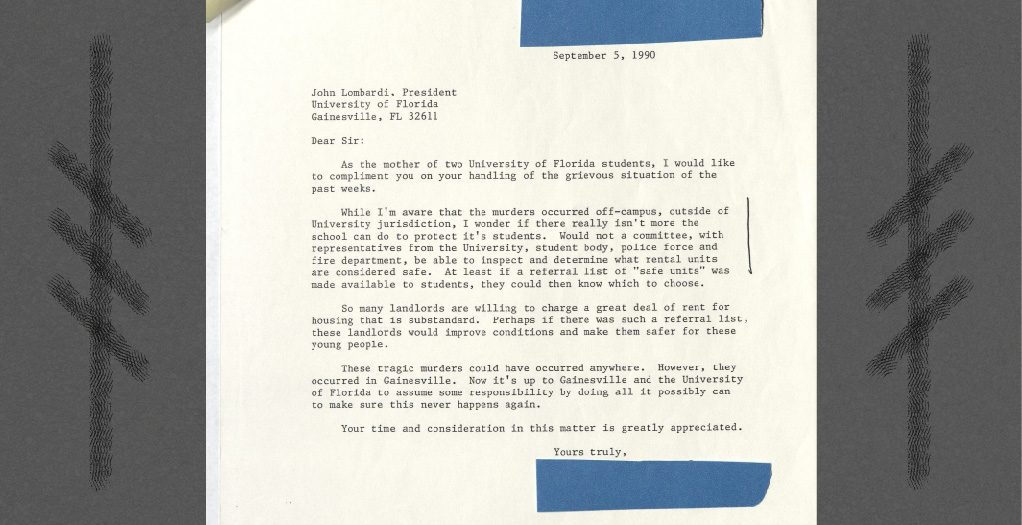
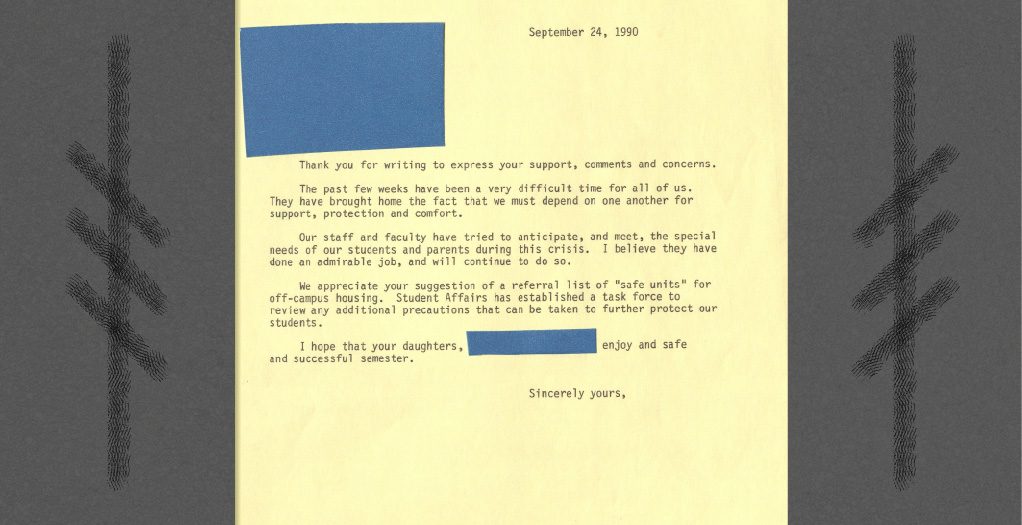
The murders of Sonja Larson, Christina Powell, Christa Hoyt, Tracy Paules and Manny Taboada occurred at off-campus apartments, which the university has no jurisdiction over. Still, in a Sept. 5, 1990 letter, a mother of two students asked Lombardi to create a committee to inspect and determine the safety of these apartments.
“These tragic murders could have occurred anywhere,” the mother wrote. “However, they occurred in Gainesville. Now it’s up to Gainesville and the University of Florida to assume some responsibility by doing all it possible can to make sure this never happens again.”
Let’s return to ‘the business of education’
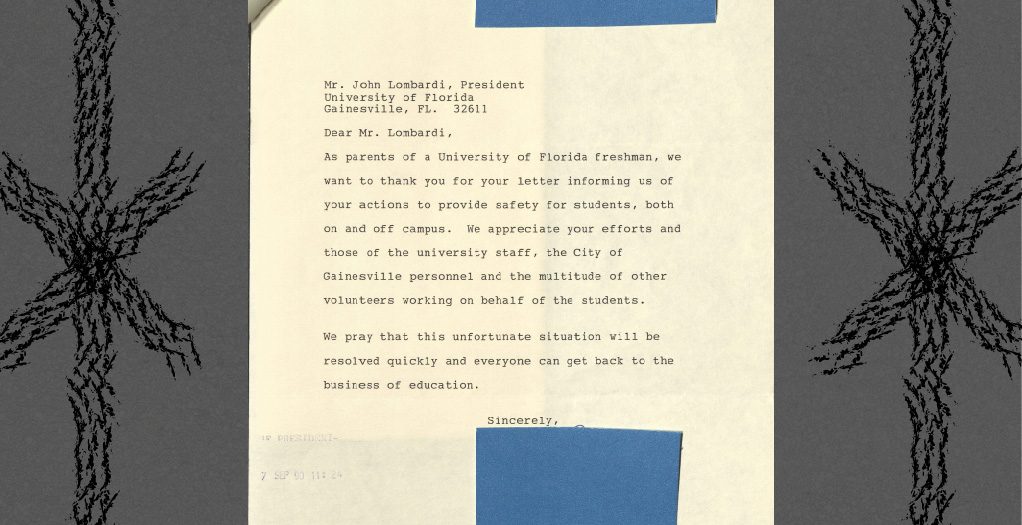
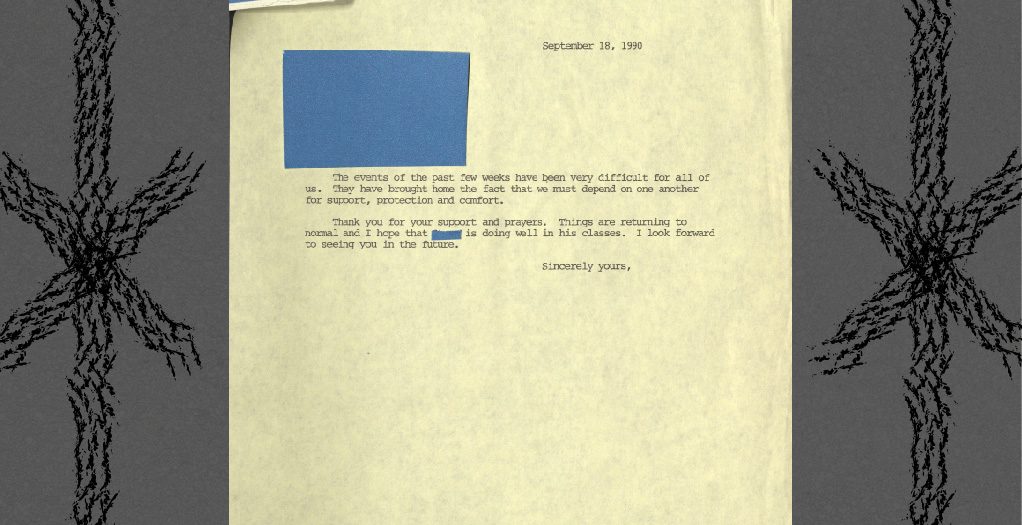
In a short letter to Lombardi, parents of a UF freshman expressed gratitude for the president’s leadership in a difficult time and a desire for the university to be able to once again focus on learning.
“We pray that this unfortunate situation will be resolved quickly and everyone can get back to the business of education,” they wrote.
And, in a response on September 18, Lombardi said things were returning to normal on campus and expressed his well wishes for their child in his classes.
 Special Report from WUFT News
Special Report from WUFT News